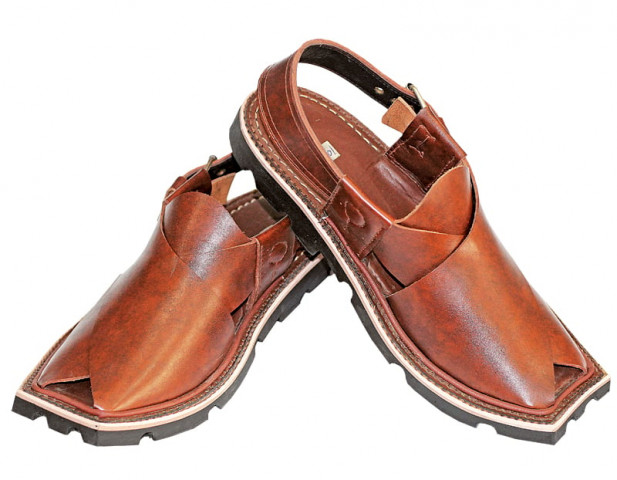Charsadda’s chappal institute cobbled out
Lack of funds, facilities leave it high and dry

Lack of funds, facilities leave it high and dry
The erstwhile design gained fame internationally when designer Paul Smith was caught copying it without attributing it to its origin a few years ago.
But in Charsadda, where the chappals are said to have originated, a different sort of crisis is brewing where the sole formal institution for footwear lies closed owing to lack of funds.
Armed with the original Peshawari Chappals, businessman fights back
To boost the production of the local chappal and footwear industry, the Trade Development Authority (TDA) of the government had in 2001 formed the Charsadda Footwear Institute (CFI). The project was supposed to train locals to refine craft and help businesses expand from dingy, but competitive stores in the local market to transform into a proper industry.
In this regard, plans for the project had been set in motion in 1999. Officials recommended setting up a training institute along with a leather village and a medium sized market to promote the local chappal industry while improving the skills of artisans and boost raw production and quality.
“It was recommended that Rs320 million should be provided from the Export Development Fund (EDF) for the purpose. But the money was never released,” said Javed Khattak, provincial chief of the Small and Medium Enterprise Development Authority (SMEDA).
“So [then] minister Awais Ghani decided and urged that an initial sum should be released so that the institute could at least start working immediately in a rented building. After that, Rs10.4 million were released in 2001,” Khattak added.
Shop making 'deer skin' Peshawari Chappal for Shah Rukh Khan raided
The government acquired a piece of land measuring around 32 kanals to build a facility for the institute. In the meanwhile, the institute continued to operate in a rented building. Machinery was also acquired for the institute.
“There are 11 employees in the institute including a principal, a female instructor, four male instructors, two guards, two officials and an accountant,” the SMEDA chief said, adding that the project was designed to attain financial self-sufficiency.
But after the government refused to release the remaining funds, the project was stunted. The training institute carried on for a while till it closed down a few years ago owing to lack of funds.
“TDA released funds for salaries of staffers for several years. But for the past two years, no funds were made available under this head so the institute closed,” said Malik Wahid, the president of the Charsadda Chappal Makers Association (CCMA).

“After the initial sum Rs10.4 million, the remaining funds were put on hold by the EDF so neither the building nor the adjacent market could be constructed,” Wahid said, adding that the entire project had envisioned a 200-shop market which could be rented out to business owners – ostensibly employing graduates of the institute.
This was supposed to form the crux of the self-sustainable plan for the institute. But with the federal government failing to release the requisite funds, the market was never built, fatally jeopardising the entire plan.
Peshawar's chappal makers deem Paul Smith's 'Robert sandal' outdated
Wahid said that the administration of the institute also never took the local association of footwear manufacturers on board. Moreover, the CCMA chief said that those already running businesses in the area were never asked to contribute to the training process – hence those graduating from the institute had to face a gap between their training and established norms and practices in the market.
“They provided training in boot making while the market demand was for local hand-made chappals,” Wahid explained, adding that 650 small manufacturing units produce several different designs of the iconic chappal and supply it to the rest of the country while also exporting it to the Gulf countries.
Despite that gap, some who acquired training at the institute put their skills to use by opening up their own businesses in the local market. “Some women, who were trained to make purses, have opened their own business,” the CCMA president said.
Published in The Express Tribune, May 15th, 2017.













COMMENTS
Comments are moderated and generally will be posted if they are on-topic and not abusive.
For more information, please see our Comments FAQ